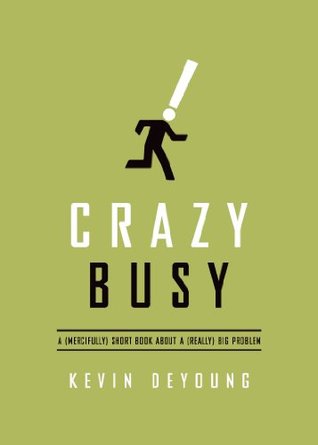More on this book
Community
Kindle Notes & Highlights
My outline is as simple as three numbers: 3, 7, and 1: three dangers to avoid (chapter 2), seven diagnoses to consider (chapters 3–9), and one thing you must do (chapter 10
We are here and there and everywhere. We are distracted. We are preoccupied. We can’t focus on the task in front of us. We don’t follow through. We don’t keep our commitments. We are so busy with a million pursuits that we don’t even notice the most important things slipping away.
guy like John Calvin never had indoor plumbing. He didn’t have centralized heat or air conditioning. He had to write his books and letters by hand or dictate them to a scribe. He had no automobile to get around in. His life had almost none of the comforts we take for granted. He was sick all the time. He worked too much. He died at 54. People can be busy in any century.
So don’t ignore the physical danger of busyness. Just remember the most serious threats are spiritual.
The first danger is that busyness can ruin our joy.
One study found that commuters experience greater levels of stress than fighter pilots and riot police.
few of us will fight right now for next week’s joy by tackling the unnecessary habits of busyness that make most weeks an unhappy hassle.
I plan no margin in my weeks—reverse margin, actually. I look at my week, and before any interruptions come or any new opportunities arise or any setbacks occur, I already have no idea how to get everything done.
The second danger is that busyness can rob our hearts.
Do you know why retreats and mission trips and summer camps and Christian conferences are almost always good for your spiritual growth? Because you have to clear your schedule to do them. You get away. You set aside your normal insanity for a weekend and find the space to think, pray, and worship.
It’s not that possessions themselves are to blame. The problem is with everything we do to take care of them and everything we do to get more of them.
If the worries of life don’t swamp us, the upkeep will.
The third danger is that busyness can cover up the rot in our souls.
“Busyness serves as a kind of existential reassurance, a hedge against emptiness,” writes Tim Kreider in his viral article, “The ‘Busy’ Trap,” for the New York Times. “Obviously your life cannot possibly be silly or trivial or meaningless if you are so busy, completely booked, in demand every hour of the day.”11 The greatest danger with busyness is that there may be greater dangers you never have time to consider.


